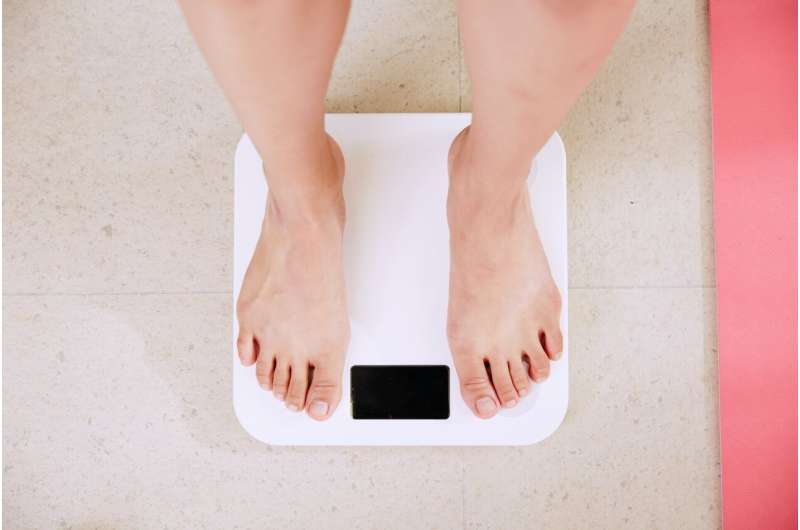This article has been reviewed according to Science X's editorial process and policies. Editors have highlighted the following attributes while ensuring the content's credibility:
fact-checked
trusted source
proofread
Weight discrimination linked to views on poverty

A new study has discovered that people who believe individuals are to blame for living in poverty are more likely to oppose laws aimed at preventing weight discrimination—suggesting some UK adults think the two issues are connected.
Researchers from Anglia Ruskin University (ARU) canvassed almost 400 individuals in the UK aged between 18 and 77, split equally between men and women, and the results have been published in the journal Body Image.
Participants were asked to rate their agreement or disagreement with a series of statements assessing their perspective of poverty, such as the extent of their belief that people living in poverty are "personally deficient," as well as assessing their views on the causes of obesity and prejudice towards people who are larger-bodied.
Researchers also recorded responses to 15 suggested policies and laws, such as "it should be illegal to fire a qualified employee because of their body weight," or that "schools should have anti-bullying policies that protect students from being bullied about their weight."
Among both women and men, the researchers found that a stronger belief that individuals are responsible for living in poverty was significantly associated with lower support for weight-related anti-discrimination policies and laws.
They also found that a stronger belief that individuals are responsible for living in poverty was associated with holding stigmatizing or prejudicial views on weight, and greater prejudice toward larger-bodied individuals.
Lead author Viren Swami, Professor of Social Psychology at Anglia Ruskin University, said, "Beliefs about weight don't occur in a vacuum. In this study, we wanted to find out how broader social and political understandings shape beliefs about weight-related discrimination."
"The results from our study suggest that attitudes toward poverty may be a barrier to bringing in anti-discrimination laws and policies towards protecting those who are larger-bodied. Any attempts to combat weight-related stigmatization might also need to challenge assumptions and beliefs about the nature and meaning of poverty."
"Being larger-bodied is often conflated with living in poverty, and our study has shown that certain views on poverty might be connected with the stigmatization, discrimination, and bias against larger-bodied individuals."
"Beliefs about poverty tend to originate in childhood and adolescence, and intervention efforts targeting young people may be particularly effective in shifting both attitudes about the poor and larger-bodied individuals."
More information: Viren Swami et al, Support for weight-related anti-discrimination laws and policies: Modelling the role of attitudes toward poverty alongside weight stigma, causal attributions about weight, and prejudice, Body Image (2023). DOI: 10.1016/j.bodyim.2023.04.005
Provided by Anglia Ruskin University




















